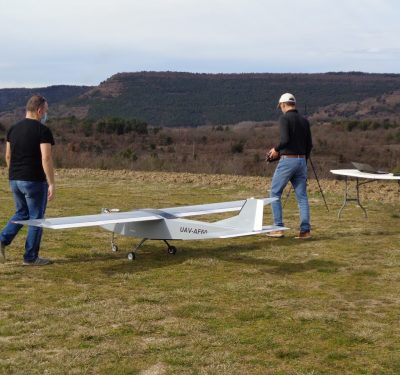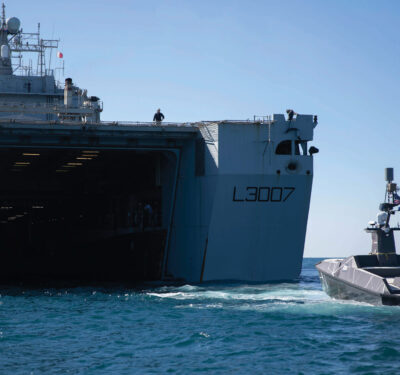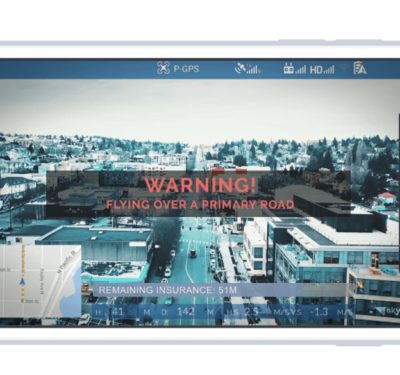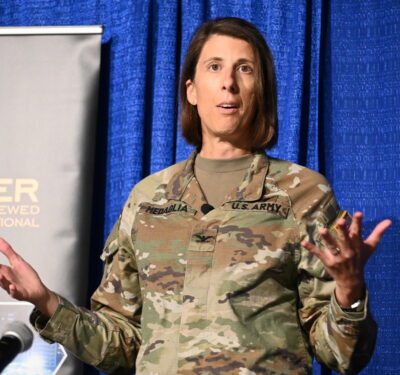At Xponential 2024 in San Diego, Inside Unmanned Systems spoke with Senior Sales Engineer Jeffrey Randall from Maxon to discuss their innovative contributions to unmanned systems, focusing on their precision motors and actuation solutions for various applications, including aviation and space.
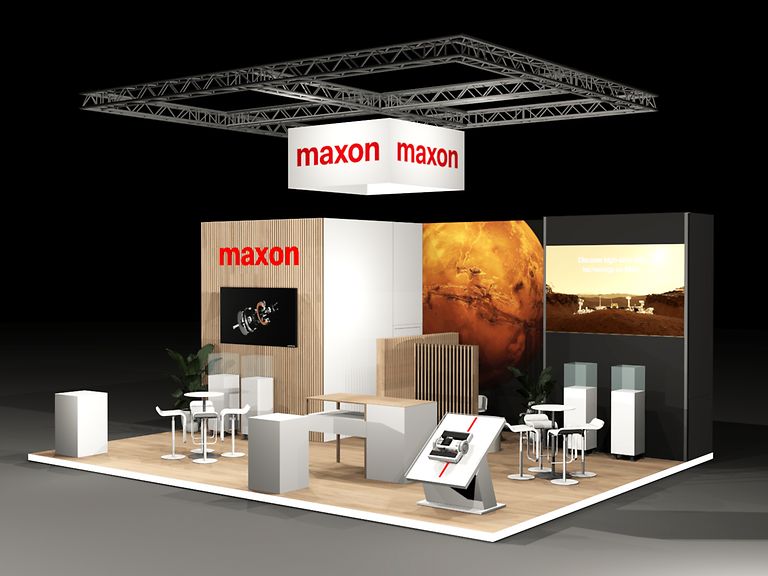
IUS: We are live at Xponential 2024 in San Diego with Jeffrey Randall from Maxon. Could you give us your take on the event so far?
Jeffrey Randall: It’s pretty exciting to see the diverse set of applications here. We are involved in many different unmanned applications, including propulsion and other actuation-type features. It’s really great to see what people have out here and to talk to our competitors and customers. It’s very exciting.
IUS: Can you tell us a little more about Maxon’s products and some of the applications you support?
Jeffrey Randall: Maxon specializes in brush and brushless DC motors, gearheads, feedback devices, and motion control. We focus on the smaller end of things, typically 1000 watts and below, though we are starting to go a bit bigger. The bulk of our products are around 400 watts and below. With these motors, gears, and encoders, you can assemble them like Lego pieces. We can pick a gearhead in a specific ratio, a motor, and add a feedback device as needed. Our specialty is taking these components and modifying them for customer requirements to come up with solutions beneficial for different types of applications.
IUS: What are some of the primary integrations you do and standard use cases?
Jeffrey Randall: Many unmanned vehicles have various actuation needs. For example, on aerial vehicles, there might be latch mechanisms or deployment mechanisms for dropping packages. Ground vehicles often have robotic arms, and we are getting involved in surface control devices for flying unmanned vehicles as well. Additionally, there are sensors that might need motion, like spinning LiDAR or other types of sensors requiring rotation.
IUS: What’s Maxon working on between now and the next Xponential? What’s the future looking like?
Jeffrey Randall: We have some specialty product lines focused on aviation and space. These products are from our standard manufacturing lines but are modified to be more robust. Unmanned systems often face extreme temperatures, shock, and vibration. We are expanding our capabilities to provide more specialized solutions for these challenging environments.
IUS: Can you talk more about the space applications that might interest our readers?
Jeffrey Randall: Space is always fascinating. Maxon has been involved in every Mars rover mission, starting with the Sojourner in 1997. We’ve been doing space applications ever since. We have a dedicated team that focuses solely on space projects. For instance, we’ve worked on solar array deployment mechanisms and actuation. We’ve been part of several moon missions, including some commercial ones. Our motors were even on the Mars helicopter, which is really exciting. These experiences allow us to apply our knowledge to new space applications.
IUS: That’s fascinating. Any closing thoughts or anything else you’d like to add about Maxon?
Jeffrey Randall: We’re a small company focused on precision, though we do have volume customers. Our specialty is taking our product know-how and industrial base and specializing it for customer applications. We’re also getting involved in the drone market in terms of propulsion. It’s a competitive field, but we’re diving in to see if we can do it a little bit better and to different standards.
Learn more at Maxon.


